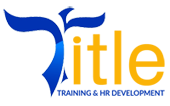| Code | Date | City | Fees | Register |
|---|---|---|---|---|
| OG028 | May 26, 2024 - May 30, 2024 | Lisbon - Portugal | $ 5000 |
Register Course.. |
| OG028 | August 11, 2024 - August 15, 2024 | Online | $ 1500 |
Register Course.. |
| OG028 | November 3, 2024 - November 14, 2024 | Dubai – UAE | $ 9000 |
Register Course.. |
| OG028 | February 9, 2025 - February 13, 2025 | Dubai – UAE | $ 5000 |
Register Course.. |
________________________________________________________________________________________________
Objectives
- The main objectives of this seminar are:
- To give an understanding of the principles of operation of a range of sensors and transducers
- By using a hands-on approach, enable the delegate to investigate the operation of an instrumentation system through designing, building and testing typical sensor combined with appropriate signal conditioning circuits
- To allow the delegate to become familiar and confident with a range of measurement techniques
- To understand the concepts of Process Control and acquire the knowledge relating to the characteristics and properties of a process variable being measured
- To become familiar and knowledgeable with PID control and develop the ability to ‘tune’ a process control system using PID control
- To have the confidence and knowledge to apply the above techniques and principles to solve an unfamiliar and bespoke measurement situation in the workplace
The Delegates
- Electronic Engineers and Technicians
- Chemical Engineers and Technicians
- Electrical Engineers and Technicians
- Electronic Design Engineers
- Instrumentation Technicians
- Electricians
- Installation and Maintenance Technicians
- Instrument and Process Control Technicians
- Instrument Fitters
- Maintenance Engineers
- Mechanical Engineers and Technicians
- Operations Engineers
- Process Technicians
- Production Professionals
- System Integrators
- Other professions (Engineers, Technicians) involved in the Process Industry who require an appreciation and understanding of the techniques used in Process Measurement and Control .
The Contents
- Introduction to Sensors, Transducers and Instrumentation Systems
- Introduction to Sensors, Transducers and Instrumentation Systems
- Terms and definitions associated with Instrumentation systems, including;
- Maximum error,
- Hysteresis,
- Repeatability,
- Sensitivity,
- Resolution,
- Span,
- Response time
- Examples
- Process Variables:
- Mass flow,
- Volumetric flow rate,
- Pressure,
- Viscosity,
- Turbidity
- Strain, Pressure and Flow Measurement (also begin practical activities)
- Principle of Strain Measurement – tension, compression, stress, strain, Youngs modulus
- Principle of operation, typical uses and installation considerations
- Gauge types – principle of operation and configurations
- Examples
- Principles of Pressure measurement
- Devices; principle of operation, typical uses and installation considerations of:
- Diaphragms
- Bellows
- Capacitive devices
- Fibre Optic pressure measurement techniques
- Principles of flow measurement
- Reynolds number
- Devices; principle of operation, typical uses and installation considerations of Invasive types:
- Coriolis Flowmeter
- Differential Pressure type flowmeters
- Devices; principle of operation, application and installation considerations of Non invasive types:
- Electromagnetic flowmeters
- Practical activity– Design and build a liquid level process measurement system
- Temperature, Level and Non-Invasive Ultrasonic Measurement Techniques
- Temperature scales
- Devices; principle of operation, typical uses and installation considerations of:
- Resistance temperature detectors (RTD’s)
- Thermistors
- Thermocouples
- Radiation Pyrometers
- Principle of single point and continuous level measurement techniques
- Direct and indirect level measurement techniques
- Devices; principle of operation, typical uses and installation considerations of:
- Ultrasonic techniques
- Capacitive techniques
- Pressure techniques
- Principles and applications of Ultrasonic techniques for non-invasive measurement
- Doppler shift and transit techniques
- Principle of operation, typical uses and installation considerations of Non-invasive flow measurement
- Ultrasonic flowmeters
- Practical activity –Calibrate the liquid level process measurement system
- Introduction to Process Control Engineering
- Control Strategies
- Block diagram representation
- Control components
- Servomechanisms and Regulators
- Open and closed loop systems
- Transfer Functions
- Negative Feedback (NFB)
- 1st and 2nd order systems
- Examples – Transfer functions and Closed Loop systems
- ON/OFF control
- Two step control action
- Proportional control
- Proportional band vs. proportional gain
- Proportional offset
- Reset
- Integral action
- Integral windup
- Derivative action
- PID control
- Practical activity – Signal condition the output from the Liquid measurement system and (if time allows) design and build a Strain gauge measurement system.
- Tuning PID Controllers
- Empirical methods of setting Controllers
- Open loop reaction curve method (Ziegler-Nichols)
- Default and typical settings
- Closed loop continuous cycling method (Ziegler-Nichols)
- Fine tuning
The Discount
10% in case of Three P. (or more)
